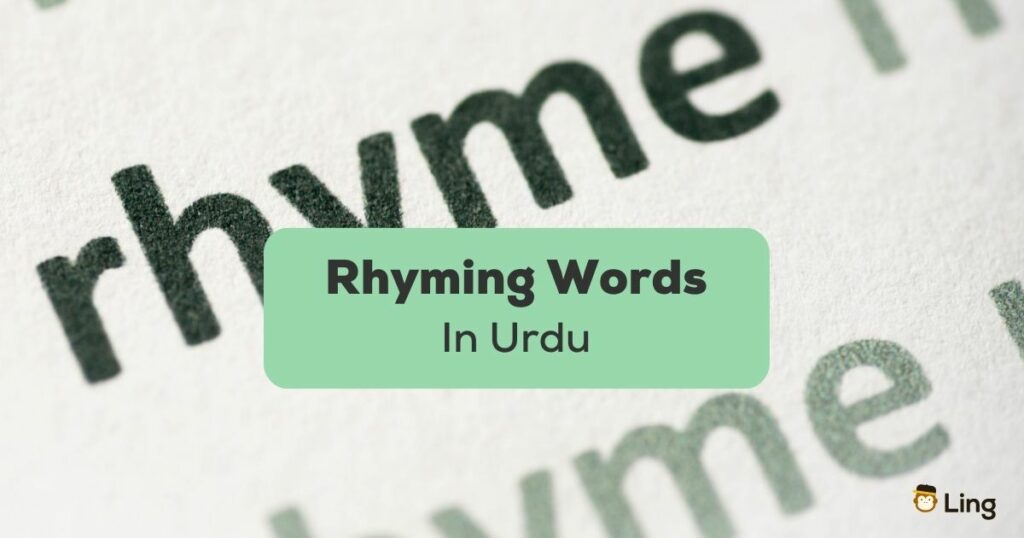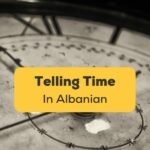Assalamu alaikum, fellow language enthusiasts! Are you ready to learn some rhyming words in Urdu that will make your tongue do somersaults? Well, hold on to your hats, because I’m about to drop some Urdu rhymes that’ll leave you asking for more!
Let’s start with aaftaab’ (آفْتاب – sun) and ‘mahtaab’ (مہتاب – moon) for you to use if you ever want to dedicate a poem written in Urdu to your beloved, calling them your sun and moon. Or if you are going through a rough patch, then you might want to rebuke them and call them a ‘sangdil’ (سَن٘گ دِل – stone-hearted) who is breaking your ‘dil’ (دِل – heart).
We’ve got ‘zindagii’ (زِنْدَگی – life) and ‘khushii’ (خوشی – happiness), because who doesn’t want to live a life full of joy? And if you’re feeling a little down, just remember that even a tonne of ‘mushkil’ (مُشْکِل – hardship) can’t keep your life from being a ‘mahfil’ (مَحْفِل – party) if you so decide!
It’s like a never-ending flow of poetic beauty that tickles the ear and touches the soul. So, if you’re in the mood for some linguistic amusement, come along with me as we explore the magic of Urdu rhymes. Let’s dive in, shall we?
Features Of Urdu Rhymes
Today, I want to talk to you about the lyrical wonder called Qaafiya (قافِیَہ) – the concept of rhyme in the Urdu language. Urdu poetry is known for its use of rhyme, with poets using various techniques to create intricate rhyming patterns. Rhyme is important in Urdu poetry as it adds to the musicality and flow of the language. It creates a rhythm and melody that results in drawing in the listener and enhances the emotional impact of the poetry. Rhyme also helps the poet to create cohesion and structure within the set verse, giving it a sense of completeness.
If you’ve ever heard the musicality of the Urdu language, then you’ll know what I’m talking about. Let me explain this with the help of a very famous Bollywood Hindi film song from the 90s, which is saturated with beautiful Urdu lyrics. One of its stanzas goes like this:
Wo yaar hai jo khushbuu ki tarah,
Jiski zubaan Urdu ki tarah,
Wo shaam-raat, meri qaaynaat
Wo yaar mera saiyyaan saiyyaan
Here is the meaning: That beloved who is all fragrance (خوشْبُ – khushbuu), the one whose speech is sweet like Urdu, she is my evening and my night (رات – raat), she is my world (کرۂ ارض – qaaynaat), she is my beloved darling.
In addition to poetry, word rhyme is also important in the Urdu language for everyday communication. Urdu speakers use words and phrases involving rhyme in their conversations, giving their language a playful and creative quality. This use of rhyme can make the language more memorable and enjoyable for learners.
List Of Rhyming Urdu Words
| English | Urdu | Roman Transcription |
|---|---|---|
| Existing – Existence | وجُو – موجود | Maujuud – Vujuud |
| Sun – Moon | مہتاب – آفْتاب | Aaftaab – Mahtaab |
| Alcohol – Grilled minced meat | کَباب – شراب | Sharaab – Kabaab |
| Increasing – Decay | خِزَاں – فِزَا | Fizaa – Khizaan |
| Glory – Integrity | اِیْمان – شان | Shaan – Iimaan |
| Respect – Safety | اَمان – مان | Maan – Amaan |
| Punishment – Approval | رَضا – سزا | Sazaa – Razaa |
| Ambience – Fun | مَضیٰ – فَضَا | Fazaa – Mazaa |
| Atmosphere – Conflict | نِزاع – فِزَا | Fizaa – Nizaa |
| Plan of Action – Destiny | تَدْبِیر – تَقْدِیر | Tadbiir – Taqdiir |
| Voice – Flight | پَرْواز – آواز | Aavaaz – Parvaaz |
| Passion – Daily | روز – سوز | Soz – Roz |
| Command – Desire | اَرْمان – فرمان | Farmaan – Armaan |
| Love – Musk | مشک – عِشْق | Ishq – Mushk |
| String – Noise | ڈور – شور | Dor – Shor |
| Musical instrument – Pride | ناز – ساز | Saaz – Naaz |
| Past – Bet – Agreeable | راضی – بازی – ماضی | Maazii – Baazii – Raazii |
| Fictitious – Temporal | اَرْضی – فَرْضی | Farzii – Arzii |
| Abundance – Anger | غَی – فیض | Faiz – Gaiz |
| Source – Sea | دریا – جَرِیا | Zariyaa – Dariyaa |
Rhyme: An Important Linguistic Tool
Rhyme is a fundamental tool and concept in linguistics and language learning. It involves matching sounds in words with syllables at the end of a phrase or sentence. The use of rhyme creates rhythm and musicality in language, making it more enjoyable and memorable.
Moreover, linguistically, it helps identify patterns, meanings, and structures in language. It allows researchers to analyze language and identify commonalities in different languages, providing insight into the history and evolution of language. Rhymes are also important in the field of phonetics, as they can help identify similar-sounding words and sounds, providing a better understanding of pronunciation and phonology.

Rhymes are also a crucial aspect of language learning. They can aid in the acquisition of new vocabulary and the development of language skills. Rhyming games and activities are often used in language classrooms to help learners practice their listening, speaking, and writing skills. By learning rhymes and practicing them, learners can improve their pronunciation, intonation, and fluency.
Moreover, rhyming can be an effective mnemonic device, helping learners to remember new vocabulary and phrases. The use of rhymes and jingles in language learning can be particularly helpful for children, for example, who may struggle to remember new vocabulary through traditional memorization techniques.
Did We Get You Intrigued Much?
Qaafiya is an essential aspect of Urdu, adding to its beauty, rhythm, and structure. It is an important tool for poets and a playful way for Urdu speakers to communicate. It helps identify patterns in language, aids in the acquisition of new vocabulary, and can be an effective mnemonic device. By using rhyming games and activities, learners can improve their language skills while having fun.
So, if you want to follow the meanings of any Urdu word in order to enjoy beautiful Urdu poems, songs, or ghazal, learning a list of rhyme words is essential.

Find Easy Ways To Learn Urdu With Ling!
Didn’t these Urdu words take your breath away? A word of caution though – the Urdu learning process is quite addictive; please practice linguistic discretion! *Wink wink* Just kidding! We at Ling are there to hold your hands and help you understand Urdu easily! With its innovative linguistic techniques and cutting-edge technology, the Ling app offers a comprehensive language-learning experience designed to help you succeed in mastering Urdu and over 60 other languages.
Doesn’t matter if you are a beginner or an advanced learner, you are always going to have an enjoyable and rewarding learning experience thanks to the Ling app’s gamified interface, interactive exercises, and fun quizzes. With in-depth lessons and real-time feedback, you can progress at your own pace and master the language quickly.
And guess what the best part is? The Ling app is completely free to download! You can search for it in the Google Play Store or Apple App Store. So, what are you waiting for? Start your language-learning journey today and discover the beauty and richness of Urdu with the Ling app.























